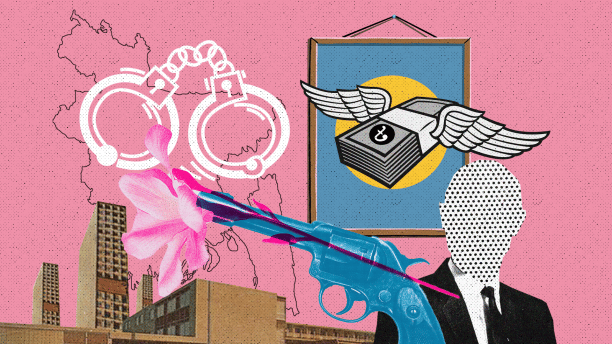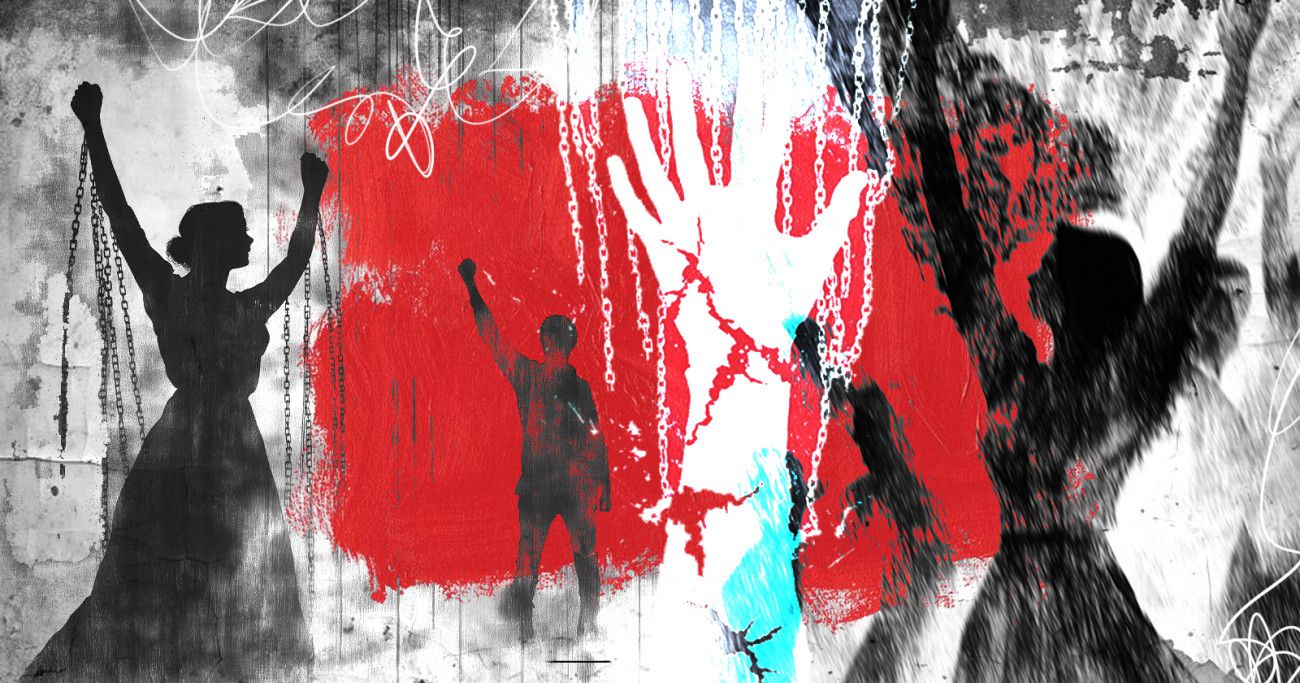Who are the true masterminds behind the current chaos?

In the dead of night, the whispers of horror spread like wildfire. A man shot and robbed of his gold, a teenage gang hacking a passerby to death in broad daylight, an entire moving bus held hostage by looters—these are not excerpts from a dystopian thriller. No, this is the daily news, the grim reality of our nation now. And what's worse? The masterminds behind this lawlessness might not even be within our borders.
The special operation codenamed Operation Devil Hunt—a name fit for a gothic horror novel—has thus far been little more than a sensationalised parade of mass arrests. In just 16 days, between February 8 and 24, a total of 9,253 individuals have been detained, yet the crime wave shows no signs of abating. If anything, it seems emboldened, as if mocking the very hands that seek to suppress it. Analysts argue that Devil Hunt is more about optics than effectiveness, a politically motivated spectacle to distract from deeper structural failures.
But what if the problem isn't just local incompetence? What if the real puppeteers are sitting comfortably in foreign lands, sipping cocktails purchased with money siphoned from our economy, now investing it in terror and crime to ensure Bangladesh crumbles under its own weight?
Once upon a time—before they were ousted—the Awami political elites were busy playing an elaborate game of Monopoly with the country's treasury. Billions of dollars were laundered to Dubai, Canada, Malaysia, and Switzerland, each penny meticulously extracted from our banks, our development projects, and our hard-earned remittances. Their love for luxury condos and offshore accounts was only matched by their disdain for accountability.
If anyone wonders why crime hasn't stopped despite thousands being thrown behind bars, the answer is simple—because the real criminals may not even be here. Many are in exile, directing traffic on the highway to hell.
Political analysts and criminologists are puzzled. How does a country with active security forces and a special anti-crime operation still manage to descend into such chaos? The answer lies in economic incentives. The funding required to maintain an organised crime syndicate does not fall from the sky. Someone is paying for the guns, someone is organsing the logistics, and someone is ensuring that criminals get the needed support after their inevitable arrests.
And where does this mysterious funding come from?
Consider this: the very criminals now looting the streets are often allegedly found to have surprising connections to the exiled political elites. As police scramble to arrest low-level foot soldiers, the masterminds remain untouchable, their influence extending from plush overseas retreats to the grimy back alleys of Dhaka. They are the ones bankrolling terror, ensuring that the public remains distracted, disillusioned, and desperate.
For the exiled elites, this is a win-win strategy. A destabilised Bangladesh serves multiple purposes—it undermines the legitimacy of the current administration, creates an atmosphere of fear and frustration, and most importantly, sets the stage for their possible grand return. After all, they may think that when the public is pushed to the brink, they will be willing to demand "any" solution, even from the same looters who once drained the country's coffers dry.
The terrifying rise of mob justice is perhaps the most striking indicator that people no longer trust the system. In some areas, pickpockets were beaten to a pulp. Elsewhere, suspected criminals were lynched before the police could even arrive. The irony is suffocating—while the public takes justice into its own hands, many of the real villains enjoy state-of-the-art security abroad.
The situation has become so absurd that even the police seem confused about their priorities. While they launch large-scale operations against petty criminals, gold smugglers, corrupt bureaucrats, and financial fraudsters walk free. Meanwhile, the home affairs adviser promises "even stronger" crackdowns. One has to wonder how much more "crackdown" does it take to actually produce results?
Perhaps the most poetic part of this tragedy is that the very people suffering today were, not too long ago, permitted the very system that enabled this crisis. They tolerated financial corruption, thinking it wouldn't affect them. They ignored blatant money laundering, assuming it was just "politicians being politicians." But now, as criminals rule the night and day, they realise—too late—that stolen money has consequences beyond just emptying bank accounts.
It's easy to view this crisis as a purely domestic issue, but the ramifications extend far beyond our borders. The rise of unchecked crime in Bangladesh doesn't just affect the local population; it threatens regional security and economic stability. Foreign investors, already wary of corruption, will hesitate even more. Tourism will dwindle. And the global financial watchdogs, seeing the unchecked movement of illicit funds, could consider harsher restrictions on Bangladesh's financial transactions.
This is an attempt to strategically dismantle a nation, one crime at a time.
Despite the bleakness, there is one undeniable truth—fear is contagious, but so is courage. People are fighting back, not just against robbers, but against the very culture of impunity that enabled them. Protests demanding accountability are gaining traction. Students at Dhaka University, fed up with empty promises, are taking to the streets. Even local businessmen, traditionally silent, are beginning to resist.
The question remains: will this resistance be enough? Can Bangladesh reclaim its streets before the next wave of violence? More importantly, will we learn from this crisis and finally hold those in power accountable—not just the petty criminals, but the grand architects of this nightmare?
Or will we, yet again, watch the looters walk free—only to return in a different disguise, ready to rob us blind once more?
The next few months will decide whether we remain a nation of victims or finally rise as a nation of justice.
H. M. Nazmul Alam is an academic, journalist, and political analyst. He can be reached at nazmulalam.rijohn@gmail.com.
Views expressed in this article are the author's own.
Follow The Daily Star Opinion on Facebook for the latest opinions, commentaries and analyses by experts and professionals. To contribute your article or letter to The Daily Star Opinion, see our guidelines for submission.




 For all latest news, follow The Daily Star's Google News channel.
For all latest news, follow The Daily Star's Google News channel. 

Comments